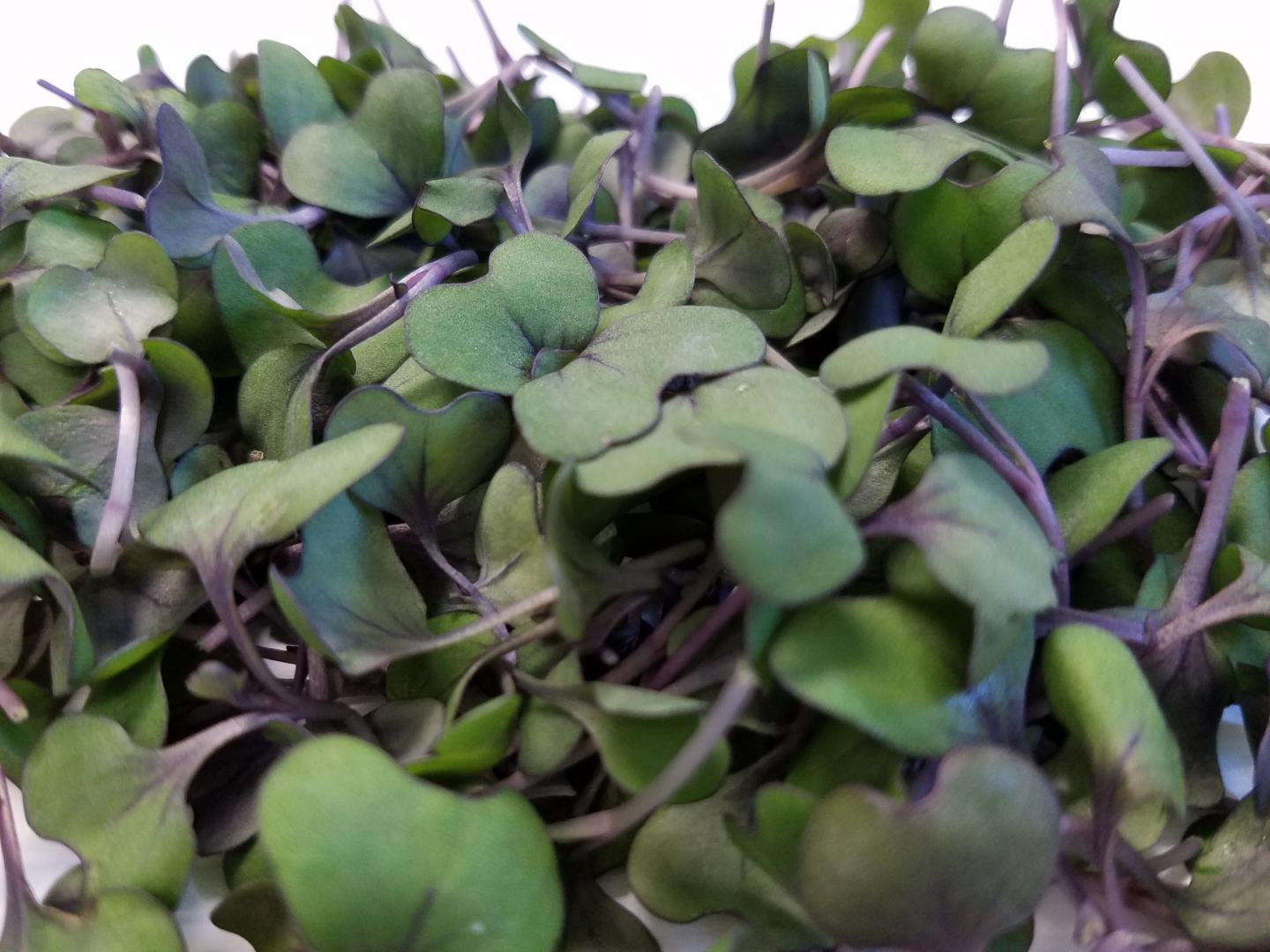
Credit: American Chemical Society
Microgreens are sprouting up everywhere from upscale restaurants to home gardens. They help spruce up old recipes with intense flavors and colors, and are packed with nutrients. Now testing has shown that for mice on a high-fat diet, red cabbage microgreens helped lower their risk factors for developing cardiovascular disease and reduce their weight gain. The report appears in ACS' Journal of Agricultural and Food Chemistry.
Microgreens are tender, immature plants and herbs that take only a week or two to grow before they're ready for harvesting. A growing body of research suggests that microgreens could offer more health benefits than their mature counterparts. And since previous studies have shown that full-grown red cabbage can help guard against excessive cholesterol, Thomas T.Y. Wang and colleagues wanted to see if red cabbage microgreens might have a similar or even greater effect than their larger counterparts.
To test their hypothesis, the researchers used mice that were a model for obesity. These animals also tend to develop high cholesterol and other risk factors for cardiovascular disease. The team divided 60 of these mice into different diet groups. They received food low in fat or high in fat, and with or without either red cabbage microgreens or mature red cabbage. Both the microgreens and mature cabbage diets reduced weight gain and levels of liver cholesterol in the mice on high-fat diets. But the study also showed that microgreens contained more potentially cholesterol-lowering polyphenols and glucosinolates than mature cabbage. The baby plants also helped lower LDL, or "bad," cholesterol and liver triglyceride levels in the animals.
###
The authors acknowledge funding from the U.S. Department of Agriculture.
The abstract that accompanies this study is available here.
The American Chemical Society is a nonprofit organization chartered by the U.S. Congress. With nearly 157,000 members, ACS is the world's largest scientific society and a global leader in providing access to chemistry-related research through its multiple databases, peer-reviewed journals and scientific conferences. Its main offices are in Washington, D.C., and Columbus, Ohio.
To automatically receive news releases from the American Chemical Society, contact [email protected].
Follow us: Twitter Facebook
Media Contact
Michael Bernstein
[email protected]
202-872-6042
@ACSpressroom
http://www.acs.org
############
Story Source: Materials provided by Scienmag





